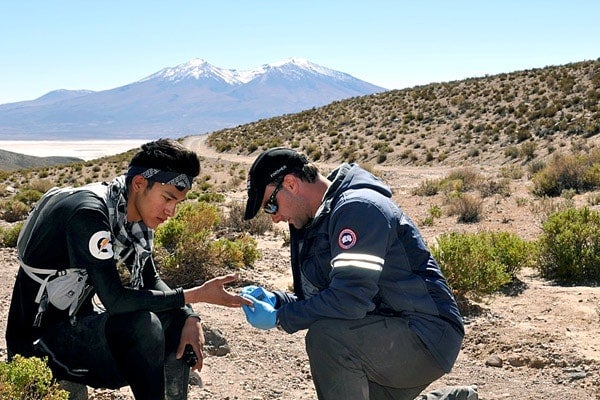
U of T at the Olympics: Meet Greg Wells
Published: August 8, 2012
Greg Wells knows bodies. An assistant professor at U of T’s Faculty of Kinesiology and Physical Education and associate scientist at the Hospital for Sick Children, Wells hosted the Gemini-Award winning Superbodies television segment during the 2010 Vancouver Games. Before heading to London to provide expert insights and commentary for the 2012 Olympics, Wells discussed the impact of sports science with writer Gavin Au-Yeung.
How does sports science affect athletes?
Sports science has been around for a while, but awareness of it is increasing because we’re seeing how athletes have to employ sport science techniques and skills in order to be competitive internationally.
There’s also a shift in society where people are more interested in exercise and nutrition. People want to learn more about what athletes know and the techniques they use to perform. Many are becoming more athletic, so there’s definitely an interest in human bodies.
Sports science revolutionized our performance in sports and has the potential to revolutionize health. We are seeing the area continue to grow and explode. Hopefully, we can have a tremendous impact on not just the athletes, but people who watch athletes and people involved in exercise at any level – anyone can benefit from the knowledge we’re gaining in nutrition, biomechanics, psychology and physiology.
What’s your specific area of expertise?
As an exercise physiologist, I look at the function of the human body in “extreme conditions”; specifically I examine children with chronic diseases and high performance athletes.
Although the two categories seem like complete opposites, they’re actually quite similar. A child with cystic fibrosis has challenges with getting oxygen into their lungs; a swimmer may have the same challenge in the middle of their race. A child with heart disease could have issues with the function of their heart muscle; something a marathon runner may encounter during competition. So although they seem different, in fact, many of the circumstances they face are very similar.
Tell us about your recently published book, Superbodies?
Tremendous interest was expressed by thousands of viewers after my sports science television segment during the Vancouver Olympics. So I thought it’ll be a good opportunity to write a book about sports science and how it relates to everyday life.
In the book, I explore some of the best examples of how humans are capable of breaking down the limits (of human capability) to achieve amazing things. I explain how that happens, and then relate it back to things everyone can do. We can all learn from the techniques used by Olympians. Hopefully by reading about them, I can inspire people to integrate them into their own lives.
The book relates to people interested in human performance, people interested in business, music, academics. The fundamental element is the science of the human body.
Describe your role at these Games.
I’m an analyst for CTV, TSN, and Sportsnet, where I analyze and explain sports science as it relates to the Olympic Games and athlete performances.
We pre-recorded 13 episodes of “Superbodies”, which analyze specific aspects of certain sports. I’ll also be doing live analysis and breakdowns on a daily basis depending on what happens on any given day.
How did you first get involved with the Olympics?
I coached people on the international level and I’ve been an exercise psychologist for Olympic teams about 16 years. Right before Vancouver, I was asked by CTV to do the sports science analysis. Now I’ve transitioned from coaching to being a sports scientist for Olympic athletes.
It’s been a slow and long evolution to get to this point, but it’s been a fun road.
What makes each Olympic Games unique or special?
It’s the one moment when countries around the world compete under the same conditions, locations and rules. There’s more pressure and inspirational moments that arrive because of that. People are finding ways of pushing themselves that they don’t find at world championships. It’s a completely different world that exists only for a few moments. Because of that, amazing things always happen.
What’s next for you, after the Games?
We recently opened the Human Physiology Research Unit; the lab will be building a high performance sport research program. I’m looking forward to building a new program and a system at U of T to explore the limits of what humans are capable of doing and pushing our understanding of that even further in the coming years.



